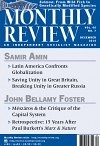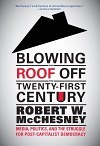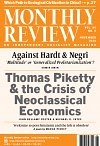Political Economy

John Cassidy, who writes on economics for the New Yorker, is in our view one of the most interesting anhd creative commentators on economic analysis and trends writing in the mainstream today. His perspective might be best characterized as institutionalist-realist, in the tradition of thinkers like Thorstein Veblen, John Kenneth Galbraith, and Hyman Minsky.… Cassidy’s latest critical contribution is an online New Yorker news item published on December 12, 2014, carrying the rather prosaic title, “The Winner of the Spending Bill Vote: Jamie Dimon.”… [In this piece] Cassidy…explain[s] how the spending bill passed by the House of Representatives included a rider that rolled back regulations that had been imposed after the Great Financial Crisis on some of the riskier activities of banks. Such speculative activities were to be transferred to the unregulated bank subsidiaries not covered by the federally guaranteed bank insurance system. This has now been reversed and banks are again allowed to engage directly in such high-risk speculative activities, with the losses being picked up by the general public.… There is no doubt that Cassidy is correct, and that the analyses of “left-left” thinkers like Sweezy, one of Monthly Review’s founding editors, and Chomsky, an MR author, have been generally on the mark in pointing out that such outcomes are to be expected in the state management of the economy. | more…
The Liberal Attack on Naomi Klein and This Changes Everything
Naomi Klein’s new book, This Changes Everything [argues that the source of the looming crisis from climate change] is not the planet, which operates according to natural laws, but rather the economic and social system in which we live, which treats natural limits as mere barriers to surmount. It is now doing so on a planetary scale, destroying in the process the earth as a place of human habitation.… In the age of climate change, Klein argues, a system based on ever-expanding capital accumulation and exponential economic growth is no longer compatible with human well-being and progress—or even with human survival over the long run.… In this way Klein…signals that she has now, in William Morris’s famous metaphor, crossed “the river of fire” to become a critic of capital as a system.… [This] has led to a host of liberal attacks on This Changes Everything, often couched as criticisms emanating from the left. These establishment criticisms of her work, we will demonstrate, are disingenuous, having little to do with serious confrontation with her analysis. Rather, their primary purpose is to rein in her ideas, bringing them into conformity with received opinion. If that should prove impossible, the next step is to exclude her ideas from the conversation. | more…
Many people think of cooperatives as small, locally owned businesses, such as groceries, cafes, or bicycle shops, where people can work in an equal and participatory non-capitalist organization. In reality, the U.S. co-op movement is tied to federal agencies whose agenda is promoting neoliberalism, both domestically and abroad, and the co-op movement itself has neoliberal leaders. Many co-ops in name are profit-driven capitalist corporations in practice. And even in the abstract, the co-op principles of smaller co-ops enable neoliberal cooperative politics. All of this, however, raises the question of what a co-op based on socialist values would be, and China’s Nanjie village provides a living example of that. | more…
Clarifying what Karl Marx thought of the role of cooperatives is useful, not to receive the “correct” answer to what that role will be, but to help think through what alternatives answers might be and how they might color today’s expectations of the cooperative movement. If one sees a non-capitalist or socialist organization of society as ultimately desirable, then how should we answer the following questions in the present day: (1) Are co-ops in production, worker-owned enterprises, desirable experimental improvements to the organization of production over standard capitalist practices, in the direction of immediate social welfare? (2) Are such co-ops in production also little islands of a different future, models of socialism within a capitalist society? (3) Are they beachheads of socialism, politically practical steps along the road to bringing forth such a possible alternative society? (4) Will they ultimately also be the foundations of such a society, if it develops? (5) All in all, what is their importance, their role, in daily struggles? | more…
Had Marx written Capital in the early twenty-first century, knowing what he could not discern in 1867—that the global dominance of capital, through the military and imperialism, would be realized by the United States—this is the book he may have written using the methodology he developed in the mid-nineteenth century.… What Walter Johnson desires is to change entirely the way we think about the history of the United States, particularly the development of capitalism. He also wants to change how we think about the application of dialectical materialism to the United States. Like Marx, Johnson marshals thick description to disclose the theses that emerge. | more…
Chris Bambery’s splendid People’s History builds upon the scholarly work of others across several generations…. In Bambery’s careful telling, the decisive moment in anything like modern Scottish history comes several hundred years ago. The Scots’ real capitalism spread through the savage process of depopulation that Marx described so brilliantly in Capital: enclosure. Over extended decades, thousands of historic villages were literally emptied, so much so that remnants of crude huts can still be found in areas that have fewer inhabitants than sheep. The distinct language, created over thousands of years and retained with great effort in Wales, and with less effort in the rural districts of Ireland, did not need to be crudely suppressed here: the victims, pushed into the cities when not driven to early deaths, seem to have lost everything in this later period but their colorful, characteristic Scottish accents. | more…
Contradictions of the Digital Economy
We have now entered a period…when new waves of commodification set in motion in earlier periods are reaching maturity. The new commodities have been generated by drawing into the market even more aspects of life that were previously outside the money economy, or at least that part of it that generates a profit for capitalists. Several such fields of accumulation have now emerged, each with a different method of commodity genesis, forming the basis of new economic sectors and exerting distinctive impacts on daily life, including labor and consumption. They include biology, art and culture, public services, and sociality. | more…

Ursula Huws ties together disparate economic, cultural, and political phenomena of the last few decades to form a provocative narrative about the shape of the global capitalist economy at present. She examines the way that advanced information and communications technology has opened up new fields of capital accumulation: in culture and the arts, in the privatization of public services, and in the commodification of human sociality by way of mobile devices and social networking. These trends are in turn accompanied by the dramatic restructuring of work arrangements, opening the way for new contradictions and new forms of labor solidarity and struggle around the planet. | more…

In 1832, when the global cholera pandemic was approaching Manchester—as a young Frederick Engels was later to recount in The Condition of the Working Class in England (1845)—“a universal terror seized the bourgeoisie of the city. People remembered the unwholesome dwellings of the poor, and trembled before the certainty that each of these slums would become a centre for the plague, whence it would spread desolation in all directions through the houses of the propertied class.” As a result, Engels noted, various official inquiries were commissioned into the condition of the poor. But little was done in the end to combat the social factors that facilitated the spread of the disease.… One can see an analogous situation today in the growing concern that has materialized in the United States and other wealthy nations over the Ebola epidemic in Africa. | more…
Foreword to The Necessity of Social Control
István Mészáros is one of the greatest philosophers that the historical materialist tradition has yet produced. His work stands practically alone today in the depth of its analysis of Marx’s theory of alienation, the structural crisis of capital, the demise of Soviet-style post-revolutionary societies, and the necessary conditions of the transition to socialism. His dialectical inquiry into social structure and forms of consciousness—a systematic critique of the prevailing forms of thought—is unequaled in our time. No less a historical figure than Hugo Chávez referred to him as the “pathfinder” of twenty-first century socialism.… The role of this foreword is to help to put his system of thought as a whole, and this book in particular, in their historical contexts, while illuminating some of the distinctive concepts governing his analysis. | more…

In the United States and much of the world there is a palpable depression about the prospect of overcoming the downward spiral created by the tyranny of wealth and privilege and establishing a truly democratic and sustainable society. It threatens to become self-fulfilling. In this trailblazing new book, award-winning author Robert W. McChesney argues that the weight of the present is blinding people to the changing nature and the tremendous possibilities of the historical moment we inhabit. In Blowing the Roof Off the Twenty-First Century, he uses a sophisticated political economic analysis to delineate the recent trajectory of capitalism and its ongoing degeneration. | more…

On September 20, 2014, while corporate and government officials arrived in New York City for the UN Climate Summit, organizers and activists from around the world participated in a peoples’ summit called the NYC Climate Convergence (organized by the Global Climate Convergence and System Change Not Climate Change). The NYC Climate Convergence featured as the lead keynote speaker Naomi Klein, who presented the analysis of her new book, This Changes Everything: Capitalism vs. the Climate (Simon and Schuster, 2014). Her concluding chapter, significantly, is entitled “Leap Years: Just Enough Time for the Impossible.” Monthly Review readers will be interested that Klein observes in her book: “Karl Marx… recognized capitalism’s ‘irreparable rift’ with the ‘natural laws of life itself’”. Later she refers to “global capitalism’s voracious metabolism”. | more…




